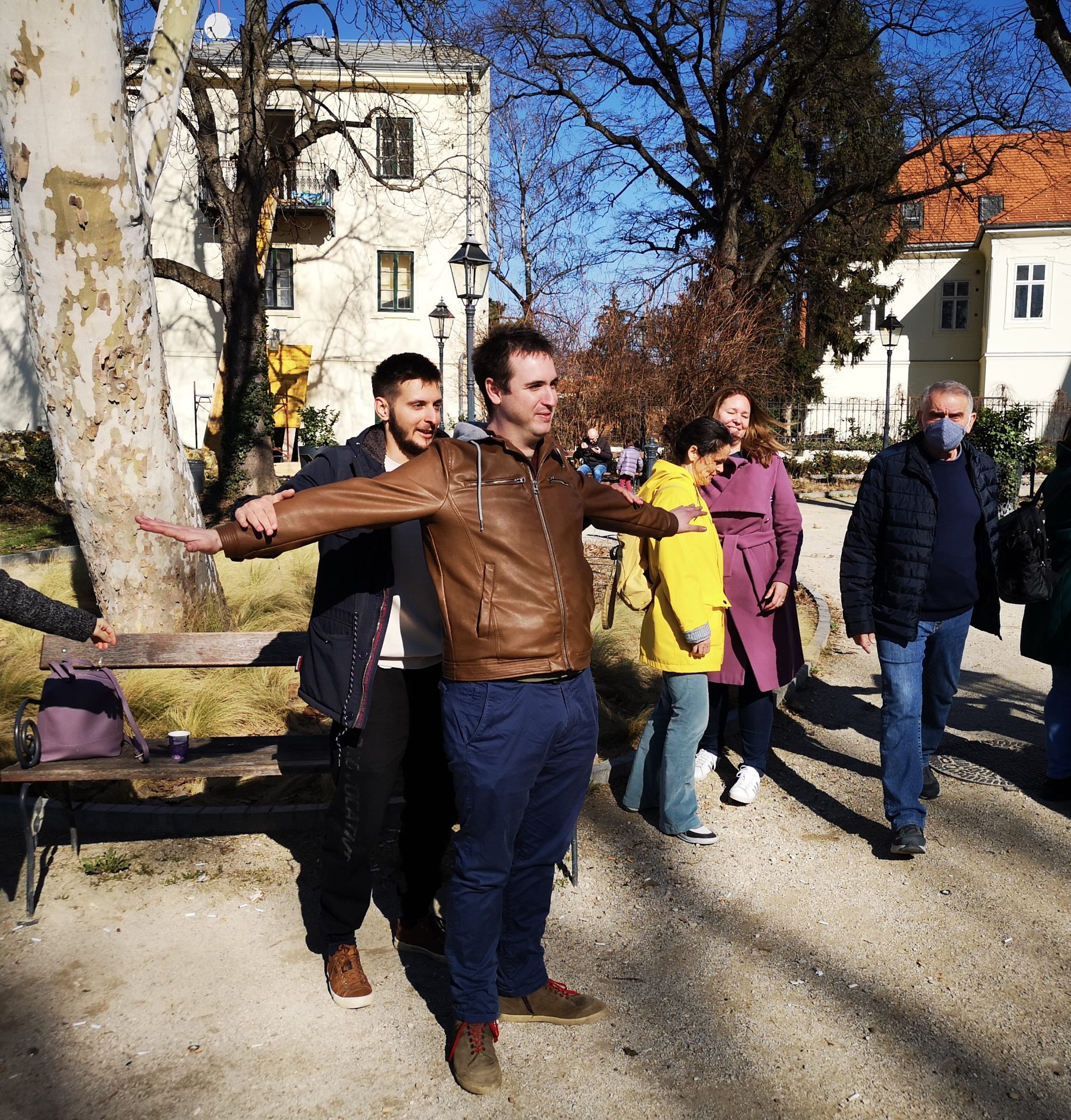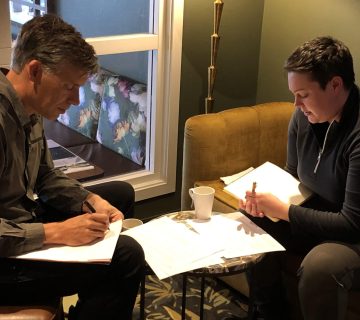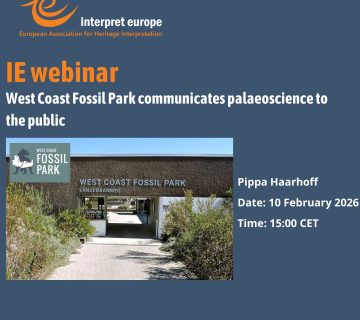Spreading optimism and enthusiasm to guides during a difficult year is easier with a Tourist Board that prioritises human resources.
“Optimism is a strategy for making a better future.” This interesting quote by Noam Chomsky shows exactly what happened in Zagreb in February, at the first CIG course in the Croatian capital. In fact, this optimism was really sparked four months earlier when the Zagreb Tourist Board recognised the importance of education for local interpretive guides, but even more this important dose of optimism (and enthusiasm) that joint workshops and exercises over five days would bring them.
That’s exactly what happened. Fifteen individuals – some of the best tourist guides of the city of Zagreb – in one place, with one goal: to raise awareness of their own knowledge and adopt the tools of interpretation in order to even better present the rich cultural heritage of the Croatian capital. Perhaps they were not aware at the start, that those five days would mean so much to them, especially after this crisis situation that has befallen tourism in the last year. They adopted the techniques of interpretation and ideas as presented by Interpret Europe, but even more they were left with a sense of togetherness and a message of optimism.
Once again, the IE CIG course proved to be greater than the technique and method itself. It revealed to the participants their love for the heritage they share together, of course revealing the deeper meaning of their work as guides and, in fact, connecting them in a special way with the heritage phenomena at that common point. A point that unites us even in a bad situation, but also one that unites us even more in our optimistic views of the world. Noam Chomsky added to the quote above: “… Because if you do not believe that the future can be better, it is unlikely that you will step up and take responsibility for it.” Just like that, the guides took this step that leads them to a more optimistic future. But that sparkle, that initial idea of the Zagreb Tourist Board to offer them a path to that optimism, proved to be extremely prophetic, somehow in the same way as we as facilitators open paths to deeper meaning.
Listening to the song of the American rock band, Timbuk 3: ‘The Future’s So Bright (I Gotta Wear Shades)’, I thought this is exactly how, as tour guides, we want to look optimistically at the world around us! And for the tourist season ahead of us!
And so it was great to hear from one of the course participants, Sabina, and how optimistic she is now feeling after experiencing an IE ray of light in the gloom of the pandemic.
After the year-long agony, during which we have mostly been stuck at home, deprived of our main source of income and worried about the future of our profession, seeing the call for the Certified Interpretive Guide (CIG) training course at first felt slightly unreal.
However, the training was so thoughtfully planned and presented to us, that it soon became apparent that we would be given a chance to leave all our worries behind, at least for a few days, in order to fully immerse ourselves in exploring the new perspectives to both our inner worlds, and our seemingly well-known surroundings.
Thanks to our trainer, Max, and the generous support of the Zagreb Tourist Board, we were given a chance to gather together for five days and acquire new skills and knowledge, which would allow us to turn any heritage phenomenon into an experience and, furthermore, develop, deliver and evaluate interpretive talks and walks.
There were 16 of us – one trainer and 15 participants; 13 licensed tourist guides and three members of the Zagreb Tourist Board staff – who came together as strangers and acquaintances, only to finish the training as friends, unified as new members of the Interpret Europe community.
Our training venue was the Museum of Broken Relationships, located in the very heart of the Upper Town – one of the oldest historical parts of the Croatian capital. In addition to that, we had a privilege to test, explore and implement our newly learned skills at yet another fascinating facility – the Museum of Chocolate.
During the course, we were very diligent about maintaining a safe distance between ourselves, and wearing masks while indoors, which by no means hindered our ability to communicate. Since we were fortunate enough to enjoy some wonderful, sunny weather for those five days, we were able to carry out most of the practical activities outdoors – in our little oasis of creativity, surrounded by the tranquility and greenery of the old town.
Experiencing the whole process of development and delivery of our interpretive talks during these demanding times served a purpose that surpassed the standard goals of the CIG training course: it stood as a powerful reminder that these difficult times indeed will pass, that there is still so much to give, explore and live, no matter how much our lives have recently changed. For this reason, our group bonded in an unusually strong way, which led to planning new meetings, discussions, tours, and various other plans for the future. After being isolated from the ‘normal’ world for such a long time and additionally terrified by the earthquakes that rocked our capital in 2020, having the opportunity to connect with both our cultural and natural heritage, and also with each other in person, turned out to be a priceless gift that we will cherish in our hearts forever.
Dubravko ‘Max’ Fijačko is an IE Certified Interpretive Trainer and is the IE Gastronomic Heritage Coordinator. You can get in touch with him at: dubravko.fijacko@gmail.com.
Sabina Fučić is a licensed tourist guide and a Polish-Turkish-Croatian conference interpreter, translator and copywriter. She lives in Zagreb, Croatia and can be contacted at: s.fucic@gmail.com.
To cite this article: Fijačko, Dubravko and Fučić, Sabina (2021) ‘Optimism is a strategy for making a better future’. In Interpret Europe Newsletter 1-2021, 13-14.
Available online: https://interpret-europe.net/wp-content/uploads/2021/03/Newsletter-Spring-2021.pdf




